-
About
- About Listly
- Community & Support
- Howto
- Chrome Extension
- Bookmarklet
- WordPress Plugin
- Listly Premium
- Privacy
- Terms
- DMCA Copyright
- © 2010-2025 Boomy Labs


 SAE Australia
SAE Australia
Listly by SAE Australia
Project-based learning is a student-centered pedagogy driven by inquiry and involves active exploration of real-world challenges and problems.

A new resource for teachers. Inquiry is a dynamic process of being open to wonder and puzzlement and coming to know and understand the world. Inquiry is quite simply a systematic investigation into a problem, issue, topic or idea. Theory and research in the field offer a myriad of conceptual models to inquiry that purports to advance the aims of the curricular shifts taking place. These approaches, however, rely on differing understandings of what constitutes inquiry and genuine knowledge creation.

Way back at the beginning of my career, I learned a critical lesson about developing driving questions. Before I’d heard of “project-based learning,” I learned and practiced “inquiry-based science” – another style of student-driven, discovery-based learning. In my first learning sciences research position, I was working with the awesome David Kanter on a middle-grades human body unit. The lessons I learned working with him have pushed my teaching forward ever since.

What is a Driving Question?
The average teacher asks 350 questions each day. These questions fall into two categories; directed (low-level) and open-ended (high-level). Of these 350 questions, most are directed. They have one correct answer. In the problem-based learning model we introduce another type of question, the Driving Question.
A Driving Question is one that focuses all other questions towards a solution or product. This question is complex, requires multiple activities and the synthesis of information from numerous sources. Driving Questions serve to organize and drive activities; and these activities result in a series of artifacts, or products, that culminate in a final product that addresses the original question.

Why did you choose the discipline you’re teaching and researching in now? What was it about its unique lens on the world that inspired you? Sometimes, in the rush to design syllabi and curriculum, and feeling buried by stacks of grading at points, it can be easy to forget the reasons we were driven to choose our disciplines in the first place. And just as these reasons inspired and inspire you, so too can they inspire students and provide a cohesion to your curriculum. This week’s post will provide some ideas for designing your course out of the foundational perspectives and questions that guide your discipline.

In this first of a three-part series, teacher and blogger Amber Graeber presents the Seven Phases of a Project Cycle, a practical breakdown of how you might guide your students through a PBL unit.
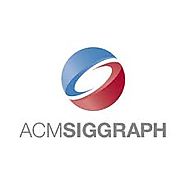
Though digital arts seems to naturally support project-based learning, undergraduate experiences in animation can have a gap between teaching principles/theories and applying them to practical experience. In animation and games, undergraduates need strong visual and technical principle foundations like composition, design, and texturing, as well as innovation, problem solving, communication, and tangential skills. It is easy to simply teach students isolated principles alone or what buttons to push, leading students to graduate without a deep understanding of those principles, nor a valuable demo reel, nor proper soft skills needed in industry.

All students—no matter where they live or what their background— should have access to quality Project Based Learning to deepen their learning and achieve success in college, career, and life. Whether you’re seeking teacher training or you’re looking for a whole-district PBL implementation, BIE looks forward to working with you.
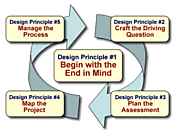
Welcome! PBL-Online will guide you through the development of engaging, standards-focused projects. When you are ready, you can download a Project Planning Form to write down your project plan. Or, log in to the PBL-Online Collaboratory to record your project ideas and share them with others.
Project planning is organized according to five design principles displayed below. Scroll over the image below for an introduction to each principle, or click to learn in depth about each principle. In addition, each design principle is supported by a set of resources and advice from expert PBL teachers. You can find these links on the left of each page.

Project-based learning, problem-based learning, and inquiry-based learning all three closely relate to the information processing approach. They all fit well with technology-rich learning environments where the focus is not on the hardware and software, but on the learning experience. In each case, technology is used to facilitate learning. It may be a tool to organize ideas (such as Inspiration), search for current information (such as an online news source), or present ideas (such as PowerPoint presentations). However the focus of learning environment is the student's excitement about solving a problem or addressing an issue they find meaningful.
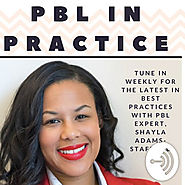
Weekly tips, interviews, strategies and best practices in implementing Project Based Learning from Instructional Coach Shayla Adams-Stafford.
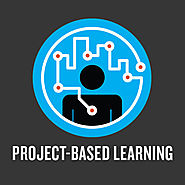
Project-Based Learning: a podcast by Edutopia and The George Lucas Educational Foundation on the iTunes Store.

Educators from Manor New Technology High School in Manor, Texas, part of the New Tech Network of schools, have provided these resources and tools for project-based learning.

By Dr. Jordan Lippman & Suzi Neft - Changes in practice around teaching collaboration can have a profound impact on student engagement and achievement.

A WebQuest is an inquiry-oriented lesson format in which most or all the information that learners work with comes from the web. These can be created using various programs, including a simple word processing document that includes links to websites. See this site for a range of project ideas and lesson plans.
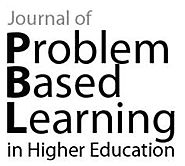
In this article we discuss the contemporary conditions for running the Aalborg Problem Based Learning-model (PBL). We try to pinpoint key characteristics of these conditions emphasising Lyotard’s conception of knowledge production referred to as the move towards a postmodern condition for knowledge. Through discussions of this alleged condition for university curricula development we investigate its connections to the PBL-model. Some of the explored conditions highlight strong potentials for the PBL-model but the postmodern condition also raises a number of changes and challenges in relation to the original PBL-model as an educational setting.
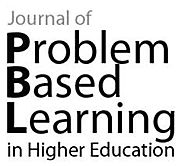
In this article, we describe a project management course developed in a multi-campus, blended learning environment, with the participation of 14 NGOs. There were 70 undergraduate students involved, from three campuses of the Federal University of São Paulo, Brazil. We discuss how the course was conceptualized, provide an outline of its curriculum and online components, and analyze its successes and failures. To gather data, we used a convergent parallel mixed method approach, and we analyzed this data by means of a systemic analysis.
We found that working with real clients on real projects, in a multi-campus blended learning environment, increases the students’ motivation to learn, develop skills, and complete projects. However, the occurrence of students dropping out of the course is demotivating and stressful to the remaining students and to the community partners.
We also found that the distances involved (between campuses and between campuses and NGO facilities), along with course schedule conflicts, make it difficult to establish rhythms between face-to-face activities and online activities. However, we also found that the intensive use of information technology can help overcome problems caused by distance and course schedule conflicts.
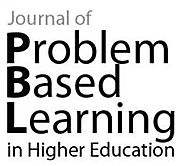
The editors are particularly interested in receiving high-quality original research articles, informed by robust empirical and theoretical underpinnings from the fields and disciplines related to problem-based learning in higher education, particularly pedagogy, but also articles based on fields and disciplines in the humanities, social sciences and science and engineering. The journal is also interested in receiving articles that make an original practical or critical contribution to research theory and practice and knowledge and understanding of contemporary themes, developments and current thinking in problem-based learning in higher education.

In addition to Lessons, Flashcards, and extra Resources, ESL Library is now developing project-based learning (PBL) modules. You’ll find these materials in our Group Projects section under the category Reading & Discovery.

Here you will find an overview of backwards design and essential elements of project-based learning that focus on identifying specific skills and outcomes and aligning these with assessment and activity options that can be integrated into participants’ own courses and/or curricular designs.
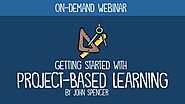
Maybe you've always wanted to try PBL, but you just haven't gotten around to it yet. Here's a set of beginner-level resources to get you started.

The term "knowledge construction" or "knowledge management" presents the idea of a stair-step approach to learning whereby learning is a building process. In Project Based Learning (PBL), a learning loop is formed using the eight essential elements of PBL endemic in today’s learning milieu.
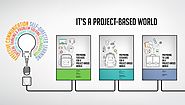
In “It’s a Project-Based World,” Getting Smart is cultivating a thought leadership campaign focused on equity, engagement, the economy and deeper learning outcomes.

Quality teaching is widely acknowledge as being a key determinant of variation in student achievement (Wenglinsky, 2000). Concomitantly, stud...